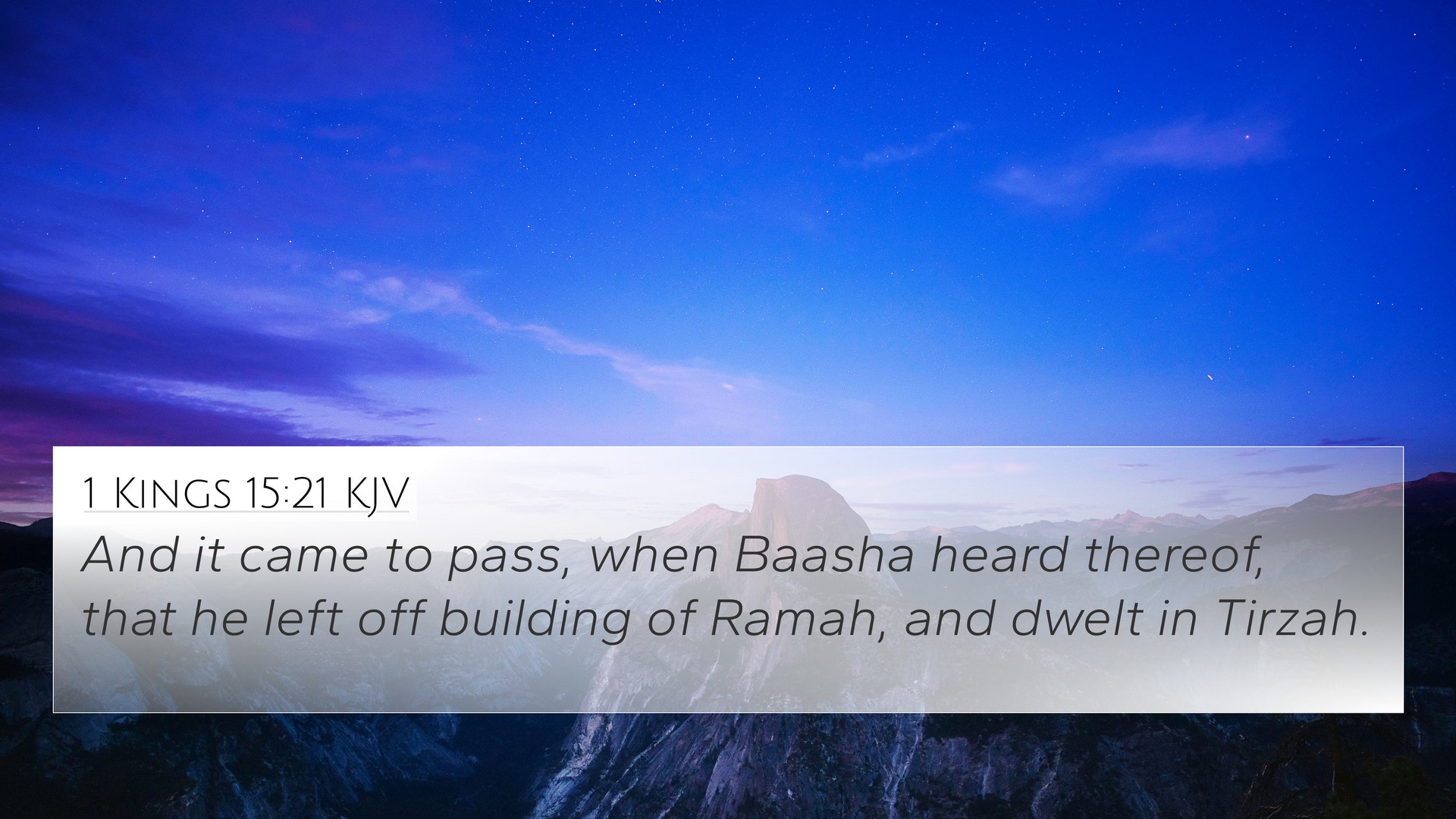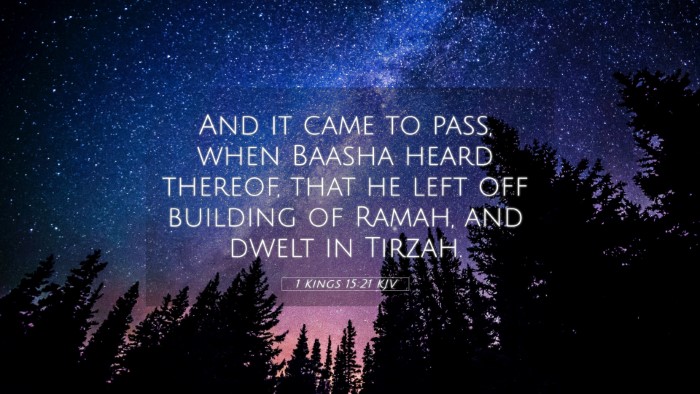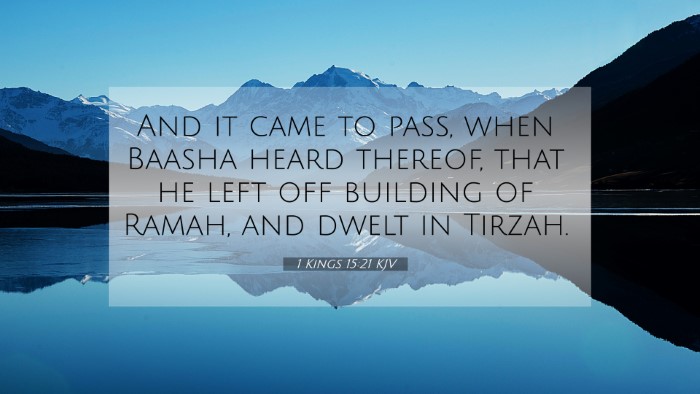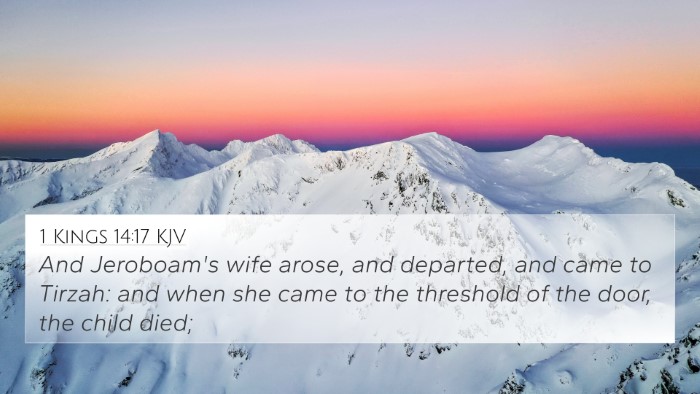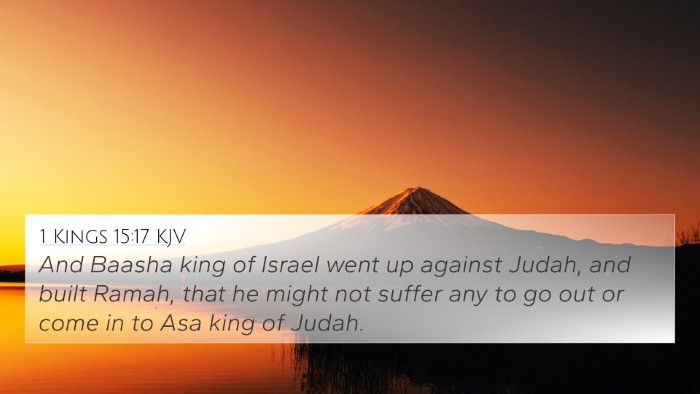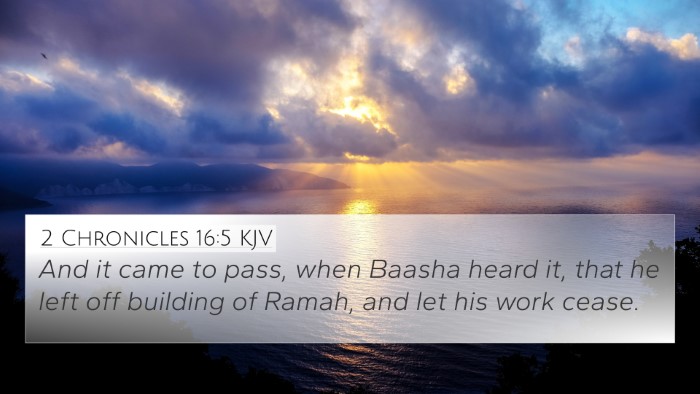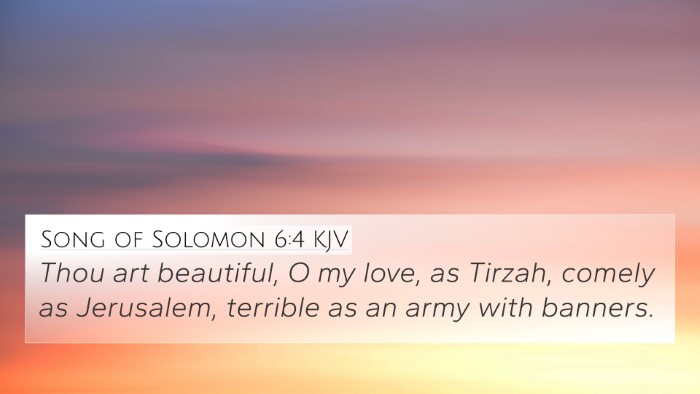Understanding 1 Kings 15:21
Bible Verse: 1 Kings 15:21 - "And when Baasha heard of it, he stopped building Ramah, and dwelt in Tizsa."
Summary of Meaning
This passage from 1 Kings captures a pivotal moment in the history of the Northern Kingdom of Israel during the reign of King Asa. The context reveals political tension and military strategy, specifically highlighting how the actions of Baasha were halted upon learning of Asa's maneuvers. The verse demonstrates the themes of power dynamics and divine intervention in the affairs of nations.
Insights from Commentaries
-
Matthew Henry:
Henry elaborates on Baasha's reaction to Asa's threats and actions. He suggests that Baasha's ceasing to build Ramah signifies both a retreat of ambition and a recognition of a greater authority, potentially inspired by the prophetic declarations against him.
-
Albert Barnes:
Barnes interprets this verse as indicative of Baasha's loss of courage. He connects Asa's reforms with divine favor, signaling that Asa's alignment with God's will undermines Baasha's plans.
-
Adam Clarke:
Clarke focuses on the strategic implications of the situation. He explains that Ramah served as a blockade for Asa and that Baasha's decision reflects the impact of political maneuvering within the broader context of prophetic guidance from God.
Cross-References Related to 1 Kings 15:21
This verse connects to various other Scripture passages that elaborate on the themes and events surrounding it. Below are notable cross-references:
- 1 Kings 12:16: The division of the kingdom and the political challenges faced.
- 2 Chronicles 14:1-6: Details Asa's reign and the reforms he implemented, demonstrating his reliance on God.
- 1 Kings 15:16-20: The ongoing conflict between Asa and Baasha.
- 2 Chronicles 16:1-3: Asa's reliance on a foreign alliance and the consequences of his actions.
- Psalm 108:13: A call for divine help against enemies, resonating with the theme of God's support for Asa.
- Isaiah 7:1-2: Contextualizes fear in the face of impending conflict, similar to Baasha's response to Asa.
- Hosea 8:4: Discusses the consequences of Israel's kings not aligning with God’s will.
Connecting the Themes
1 Kings 15:21 emphasizes the volatility of political power and the influence of divine omnipotence on human endeavors. The cessation of Baasha’s building project reflects a broader theological principle: that no plan can ultimately prevail against God's ordained purposes.
Bible Verse Cross-References
The exploration of inter-Biblical dialogue and themes through these cross-references serves to deepen understanding of God's constant sovereignty throughout history as depicted in the Scriptures. By examining parallel verses, we uncover the interconnectedness of biblical narratives and themes, such as obedience, divine justice, and the futility of opposing God's will.
Tools for Bible Cross-Referencing
To aid in further study, consider the use of various tools and resources:
- Bible concordance for locating similar themes and cross-references.
- Bible cross-reference guide for linking relevant verses easily.
- Comprehensive Bible cross-reference materials, which can provide a wealth of information.
Conclusion
1 Kings 15:21 serves not only as a historical account but as a poignant reminder of the turmoil in the lives of Israel’s leaders. This verse, along with its cross-references, invites further reflection on the implications of human actions constrained by divine oversight. Engaging in comparative Bible verse analysis and thematic Bible verse connections can enrich understanding, leading to deeper insights about God's overarching plan for humanity as portrayed in the Scriptures.
